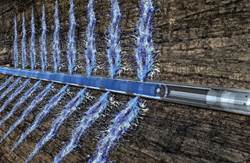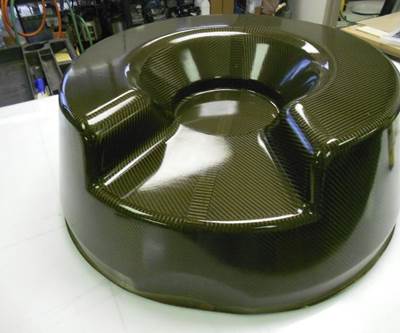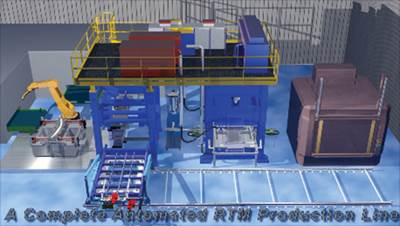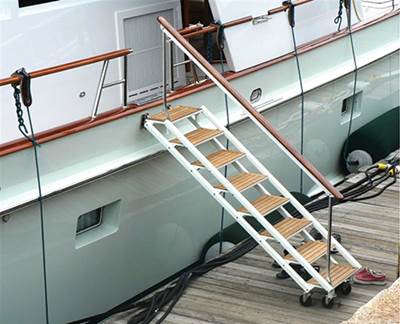Articles
Boeing, Airbus neck and neck at end of 2013
Both planemakers set records for orders, deliveries and backlogs in 2013, as the year just ended looks to be one of the healthiest for the commercial aerospace industry in more than 10 years.
Read MoreComposites boon from hydraulic fracturing?
Hydraulic fracturing — commonly known as frac'ing — has become an efficient, if controversial, method for oil and gas extraction. Composite materials are helping pave the way in this very demanding application.
Read MoreCarbon Fiber 2013 report, part 3: Wind energy
Wind and carbon fiber were, at one time, inexorably linked. But that may not be the case — at least for now.
Read MoreBMI and benzoxazine battle for future OOA aerocomposites
Offering weight, cost and process advantages, these “hot zone” resins are moving down the thermometer and into out-of-autoclave structural applications and autoclavable tooling now dominated by epoxies.
Read MoreHigh-speed RTM work cell holds promise for faster part production
Pinette Emidecau Inc. (Troy, Mich.) reports that it has developed an automated, high-speed RTM cell for aerospace and automotive manufacturing applications that is designed to increase molded part throughput and improve process consistency.
Read MoreCarbon stairs make boarding a sailing yacht a breeze
GMT Composites (Bristol, R.I.) makes lightweight but strong — typically carbon fiber — yacht-boarding systems that are easily moved and stowed.
Read MoreBuckling of composite material compression specimens
Dr. Donald F. Adams (Wyoming Test Fixtures, Salt Lake City, Utah) rehearses the causes of, and solutions for, problems with buckling in composite compression specimens.
Read MoreOut-of-autoclave manufacturing: The green solution
Regular HPC columnist Dale Brosius calls attention to the environmental benefits of out-of-autoclave processing.
Read MoreComposites repair
As more composite materials find a place on aircraft, boats, bridges and hundreds of other applications where part replacement is both difficult and expensive, OEM engineers are considering the repairability of structural and secondary composite components during the initial design phase of a project.
Read MoreComposites 2014: A multitude of markets
The effects of the Great Recession linger, but aren't holding back growth — the composites industry is definitely on the mend and riding an upward trend.
Read MoreUpdate: GE identifies cause of blade breaks
Clarifications regarding materials and processes, plus GE reports on root cause of blade breaks
Read MoreCarbon Fiber 2013 report, part 2: Automotive
Carbon fiber's future in automotive applications is not a sure thing, but the potential is real.
Read More









